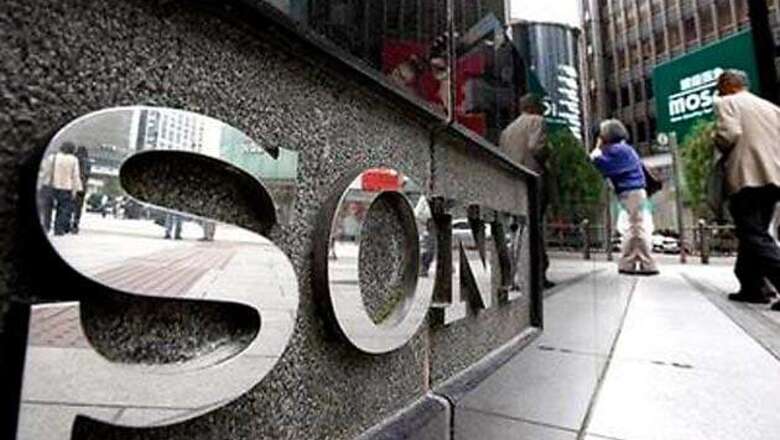
views
Tokyo: Sony's latest bid to halt years of losses and resuscitate its brand has provoked snorts of derision among analysts who say it falls a long way short.
The criticism came after Sony president Kazuo Hirai on Thursday pledged to drag the electronics giant out of a painful restructuring in the current fiscal year and pointed to ultra-high-definition technology as a possible saviour for its money-losing TV unit.
Hirai, appointed in 2012 to revive a company mired in losses, has centred his attention on shaking up a troubled consumer electronics business, including the television unit, which alone has lost about 790 billion yen ($7.8 billion) over the past decade.
A week ago, Sony shocked investors with a $1.26 billion annual loss - after several earnings downgrades - and warned it would be in the red again in the year to March 2015.
Sony lost money in five of the last six years and Moody's downgraded its credit rating on the firm to junk in January.
Hirai said the company was aiming for a 400 billion yen operating profit in the next fiscal year, but that did little to impress analysts.
Sony has long relied on profits it generated from a lesser-known insurance business, as well as movies and music operations to fill some of the yawning deficit in its higher-profile electronics segment.
"Our impression is quite negative. We believe the firm needs to engage in a radical restructuring," said Deutsche Bank analyst Yasuo Nakane.
He added that Thursday's session "revealed absolutely no new information, ideas or strategies such as to change our view on the company".
Earnings deterioration
Hirai's efforts to drag the TV business into the black have so far failed, but he has repeatedly shrugged off pleas to abandon a division that he insists remains central to Sony's core business.
The firm also rejected a call from a US hedge fund billionaire to spin off part of its profitable entertainment arm, which includes a Hollywood studio that produced the latest instalment of "The Amazing Spider-Man" series.
Much of the losses last year stemmed from costs tied to Sony's exit from the personal computer business, part of its wider shakeup which has seen layoffs and asset sales - including its Manhattan headquarters for more than $1.0 billion.
Making money in consumer electronics has been a tough ask for Japanese manufacturers in recent years as razor-thin margins and tough competition from South Korea and Taiwanese competitors dented their finances.
Sony rivals Panasonic and Sharp have also suffered massive losses, although both recently reported annual profits for the first time in years after major restructurings.
Japanese firms have also trailed in the global smartphone business where Apple and Samsung dominate, while digital camera sales have been decimated as consumers turn to picture-taking phones and tablets.
Hirai argued that a plan to split up Sony's TV business, exiting personal computers, driving into the medical equipment business and slashing costs would turn around Sony's fortunes.
He also pointed to stronger sales of 4K ultra high-resolution TVs, which tend to have better profit margins than lower-end models, as the firm shrinks losses in the beleaguered business.
Sony is a leader in the next-generation technology which is currently found on large televisions from 50 inches and above, although a high price tag has so far been a barrier to big sales.
Run out of steam
Record sales of Sony's new PlayStation 4 games console are a potential bright spot, but the expensive launch of the system kept its games division in the red last year.
"We think it is premature to assume that Sony will be able to make the structural changes needed to stem losses given smartphone and digital camera market trends and commoditisation," Goldman Sachs said in an analysis.
"Absent any news of a potential sale of the TV business after it is split out, risk of further earnings deterioration will remain.
"There is a real risk of earnings deterioration in hardware, making it unlikely that Sony will be re-rated as a premier content/network company," it added.
A Japanese analyst who covers the company said Sony's goal of a 400-billion operating profit was "too ambitious". He also pointed to the costs tied to abandoning its PC division.
He added that the firm -- once a byword for cool which revolutionised the way people listened to music with its Walkman portable cassette player -- needed more hit products.
"Mr. Hirai may have run out of steam" said the analyst, who asked not to be named.
"In the absence of appealing products to drive overall earnings... we question whether the restructuring will be adequate to the scale of the challenges facing this company."


















Comments
0 comment